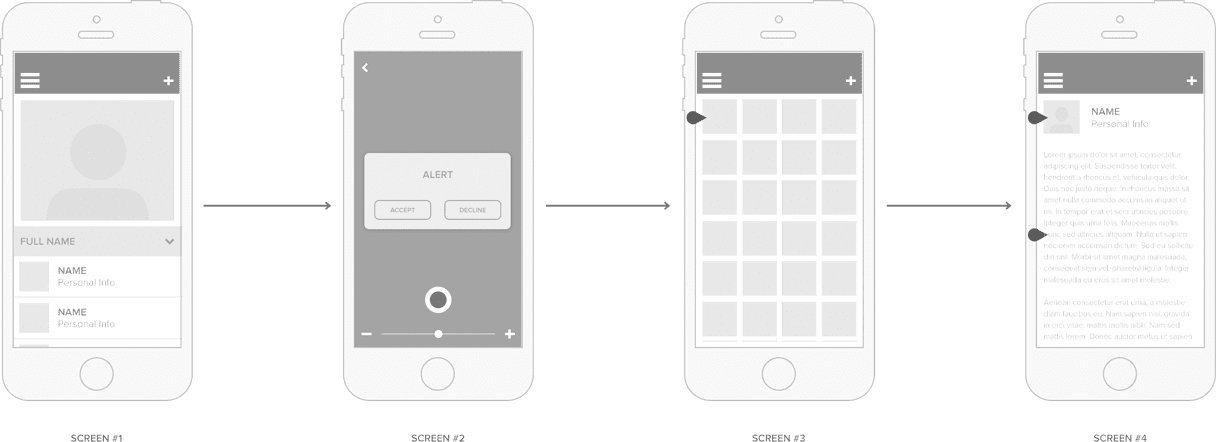
PLEASE UPGRADE TO A NEWER VERSION OF INTERNET EXPLORER
The right place to start a technology project is the discovery of the underlying human needs. Why build the software project in the first place? What human issue are we really solving? How will it make an individual and the organization better, faster, and smarter? These are key questions we discover before we begin any project.

The mission of the project plus the short and long term goals provide the foundation for making good project and technology decisions. A well defined, well understood direction for a project keeps everyone focused and is the first part of our discovery process.

When crafting software that is usable for real people, it is critical to understand the needs of those people. The heart of the Phase 2 discovery process is face-to-face conversations with actual users to understand real pain, real needs, and real success.

Often software needs to touch many different, existing systems in your organization. As important as the end user experience, these integrations will make or break the success of a project. Thus the importance of defining these technology endpoints early in the process.

With the Discovery complete, Phase 2 goes about the creative business of crafting a solution which will successfully meet the often complex needs and solve the challenging problems.

If we solve the points of pain and accomplish the goals, how would it change your organization? What is that worth? These are the questions we ask on every project before we consider any software solution complete.

A fully crafted and documented solution is always delivered to our clients in presentation with the project's key stakeholders. This solution and project plan is everything needed to get a successful project started.
Our discovery consulting is designed with two goals in mind: to gain a clear understanding of the actual problems and opportunities faced by the business, and identify the distinct, measurable success that will come from solving those issues with technology.
How would you ever solve a problem without having a clear understanding of the real problem?
How would you ever be able to justify a technology budget if you don't have well defined success criteria?
Our process is a result of years of experience, constant experimentation, and organic evolution. We always start with human beings. Information architecture designed around the needs of the actual people using the product is our first step. This turns into software architecture to facilitate those information goals.
Turning information into knowledge is the heart of every piece of software. The discovery process helps us understand the root issues, then we go about the fine art of designing information in such a way as to meet those needs and solve those problems. Information is power, and the better the information architecture, the more powerful the software.
Great, usable software requires the right software architecture to make a clear understanding of the human needs and information design. Our software architects can craft the right solution that includes a combination of existing technology, the best available technology platforms, and newly built technology.

We think our clients have the right to usable software. A major component of making software usable is great User Interface and User Experience design. From choosing the right font size for the primary element on a page, to ensuring the response from each button click is meaningful and expected, we pay attention to the fine details that make the difference between delighting and frustrating a user.
Big Data is an often used but little understood buzz word in modern software development. Organizations have been dealing with large digital data sets for decades, using various strategies to compile and consolidate information to make it usable for decision making.

What makes big data different today is the scale at which information can be created and gathered, as well as new data storage and retrieval technologies that make hard problems easier and previously impossible to solve problems, difficult, but solvable. With years of experience using big data stores, Phase 2 has helped clients, not only solve previously impossible to solve problems, but also used these technologies in unique ways to improve the overall software experience in ways that would be difficult without them.
It is critically important to the success of an organization, not just to collect data; but to visualize it in such a way as to help with everyday decision making. Well thought out data visualizations, presented during the everyday use of an application, turn data into knowledge and drives success. There are a few keys to effectively visualizing data:
1. Familiarity
2. Clairity of Dimensions
3. Quick Understanding Through Primary Dimensions
4. Deep Understanding Through Secondary Dimensions